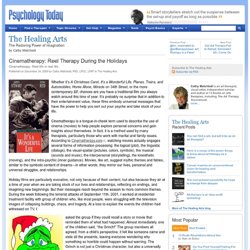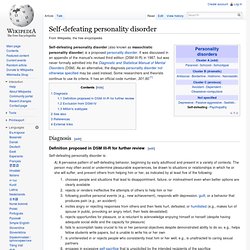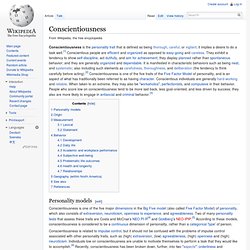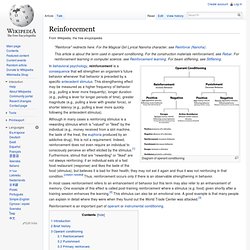

Psychology Today: Health, Help, Happiness + Find a Therapist. The Art of Now: Six Steps to Living in the Moment. A friend was walking in the desert when he found the telephone to God. The setting was Burning Man, an electronic arts and music festival for which 50,000 people descend on Black Rock City, Nevada, for eight days of "radical self-expression"—dancing, socializing, meditating, and debauchery. A phone booth in the middle of the desert with a sign that said "Talk to God" was a surreal sight even at Burning Man. The idea was that you picked up the phone, and God—or someone claiming to be God—would be at the other end to ease your pain.
So when God came on the line asking how he could help, my friend was ready. "How can I live more in the moment? " "Breathe," replied a soothing male voice. My friend flinched at the tired new-age mantra, then reminded himself to keep an open mind. "Whenever you feel anxious about your future or your past, just breathe," continued God. You Are Not Your Thoughts Life unfolds in the present. Most of us don't undertake our thoughts in awareness. Beyond Betrayal: Life After Infidelity. Day after day in my office I see men and women who have been messing around.

They lead secret lives, as they hide themselves from their marriages. They go through wrenching divorces, inflicting pain on their children and their children's children. Or they make desperate, tearful, sweaty efforts at holding on to the shreds of a life they've betrayed. They tell me they have gone through all of this for a quick thrill or a furtive moment of romance. Sometimes they tell me they don't remember making the decision that tore apart their life: "It just happened. " Accidental Infidelity All affairs are not alike.
Many times a young man has started his career as a philanderer quite accidentally when he is traveling out of town on a new job with a philandering boss who chooses one of a pair of women and expects the young fellow to entertain the other. After an accidental infidelity, there is clearly the sense that one's life and marriage have changed.
Relationships. Creativity. Cinematherapy: Reel Therapy During the Holidays. Whether it’s , or the more contemporary , chances are you have a traditional film you always watch around this time of year.

It’s probably no surprise that in addition to their entertainment value, these films embody universal messages that have the power to help you sort out your psyche and take stock of your life. Cinematherapy is a tongue-in-cheek term used to describe the use of cinema (movies) to help people explore personal concerns and gain insights about themselves. In fact, it is a method used by many therapists, particularly those who work with marital and family issues.
According to Cinematherapy.com , watching movies actually engages several forms of information processing: the logical (plot), the linguistic (dialogs), the visual-spatial (pictures, colors, symbols), the musical (sounds and music), the interpersonal (storytelling), the kinesthetic (moving), and the intra-psychic (inner guidance) . © 2009 Cathy Malchiodi, PhD, LPAT, LPCC www.cathymalchiodi.com. 453px-EQ_Emotional_Quotient_map.svg.png (PNG Image, 453x342 pixe. Free online mind mapping software. Self-defeating personality disorder - Wikipedia, the free encycl. Self-defeating personality disorder (also known as masochistic personality disorder) is a proposed personality disorder.

It was discussed in an appendix of the manual's revised third edition (DSM-III-R) in 1987, but was never formally admitted into the Diagnostic and Statistical Manual of Mental Disorders (DSM). As an alternative, the diagnosis personality disorder not otherwise specified may be used instead. Some researchers and theorists continue to use its criteria. It has an official code number, 301.90.[1] Conscientiousness. Personality models[edit] Origin[edit] Terms such as 'hard-working,' 'reliable,' and 'persevering' describe desirable aspects of character.

Rosenberg self esteem scale. Self-esteem. Self-esteem is a disposition that a person has which represents their judgments of their own worthiness.[5] In the mid-1960s, sociologist Morris Rosenberg defined self-esteem as a feeling of self-worth and developed the Rosenberg self-esteem scale (RSES), which became the most-widely used scale to measure self-esteem in the social sciences.[6] Nathaniel Branden in 1969 defined self-esteem as "the experience of being competent to cope with the basic challenges of life and being worthy of happiness.

" According to Branden, self-esteem is the sum of self-confidence (a feeling of personal capacity) and self-respect (a feeling of personal worth). It exists as a consequence of the implicit judgment that every person has of their ability to face life's challenges, to understand and solve problems, and their right to achieve happiness, and be given respect.[7] Psychological manipulation. Psychological manipulation is a type of social influence that aims to change the perception or behavior of others through underhanded, deceptive, or even abusive tactics.[1] By advancing the interests of the manipulator, often at another's expense, such methods could be considered exploitative, abusive, devious, and deceptive.

Social influence is not necessarily negative. For example, doctors can try to persuade patients to change unhealthy habits. Social influence is generally perceived to be harmless when it respects the right of the influenced to accept or reject and is not unduly coercive. Depending on the context and motivations, social influence may constitute underhanded manipulation. Reinforcement. Diagram of operant conditioning Although in many cases a reinforcing stimulus is a rewarding stimulus which is "valued" or "liked" by the individual (e.g., money received from a slot machine, the taste of the treat, the euphoria produced by an addictive drug), this is not a requirement.

Indeed, reinforcement does not even require an individual to consciously perceive an effect elicited by the stimulus.[1] Furthermore, stimuli that are "rewarding" or "liked" are not always reinforcing: if an individual eats at a fast food restaurant (response) and likes the taste of the food (stimulus), but believes it is bad for their health, they may not eat it again and thus it was not reinforcing in that condition. [citation needed] Thus, reinforcement occurs only if there is an observable strengthening in behavior. In most cases reinforcement refers to an enhancement of behavior but this term may also refer to an enhancement of memory. Introduction[edit] B.F.
Tony Robbins Six Human Needs. Stress: Portrait of a Killer » Q&A: Why does psychological stres.